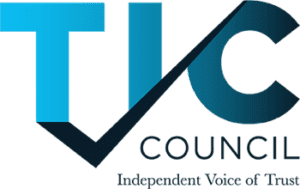LOSS CONTROL
WHAT IS LOSS CONTROL IN FUELS?
Loss control in fuels refers to measures taken to minimize the loss or waste of fuel during its transportation, storage, and distribution. This may include implementing strict safety procedures, conducting regular inspections and maintenance of fuel storage tanks, using leak detection systems, and implementing measures to reduce theft or diversion of fuel. The goal of loss control is to ensure the efficient and safe use of fuel resources, prevent environmental harm and minimize financial losses.
Temperature and shrinkage are two important factors when considering loss control. Temperature especially, has a profound impact when if fluctuates from hot to cold and vice versa. Shrinkage is a big factor as well when mixing two products.
- Temperature: When a product gets colder, the customer will show a gain. When the product shows an increase in temperature, it will show less.
- Shrinkage: Shrinkage is caused by mixing two or more different characteristics of petroleum in the same pipeline or shore tank
HOW DO YOU MEASURE LOSSES?
Losses in fuels can be measured through various methods, including:
Inventory Reconciliation
Comparing the amount of fuel received, stored and dispensed, and calculating the difference between them to determine any discrepancies or losses
Volume or Mass Measurements
Measuring the fuel levels in tanks or containers using measuring devices such as dip sticks, flow meters, or weigh scales to determine the actual volume or mass of fuel stored
Leak Detection
Detecting leaks in storage tanks, pipelines or dispensing systems using techniques such as visual inspections, ultrasonic testing, pressure testing, or sniffer dogs trained to detect the odor of fuel
Audit and Inspection
Regularly conducting audits and inspections of fuel storage and distribution systems to identify any potential causes of losses, such as theft or incorrect dispensing
Data Analysis
Analyzing data from fuel management systems and accounting records to identify trends and patterns of fuel usage and to detect any potential losses
The choice of method(s) used to measure losses will depend on the type of fuel, the size of the operation, and the specific requirements of the organization.
LOSS CONTROL CHALLENGES
There are several challenges associated with loss control in fuels, including:
THEFT AND DIVERSION
One of the biggest challenges is theft and diversion of fuel, which can occur at any stage of the supply chain, from storage tanks, to transmission and even the point of sale
INACCURATE DATA
Inaccurate metering and record keeping can make it difficult to accurately determine the amount of fuel received, stored, and dispensed, leading to discrepancies and losses
MAINTENANCE AND REPAIRS
Maintenance of fuel storage tanks and dispensers are critical to preventing leaks and losses. The need for specialized equipment and expertise complicates this
REGULATIONS
Keeping up with changing regulations and requirements can be a challenge, especially in countries with rapidly evolving fuel markets or regulatory frameworks
FUEL TYPES AND QUALITY
Different fuel types and variations in fuel quality can make it challenging to accurately measure and control losses, particularly when dealing with high-value fuels like gasoline or diesel
COMPLEX SUPPLY CHAIN
The complex nature of modern supply chains, with multiple stakeholders involved in the transportation, storage, and distribution of fuels, can make it difficult to manage and control losses
RESISTANCE TO CHANGE
Resistance to change from personnel involved in fuel management, or from stakeholders such as suppliers and customers, can limit the effectiveness of loss control measures
LIMITED RESOURCES
Limited resources, including budget and personnel, can limit the ability to implement and sustain effective loss control measures across the supply chain
CORRUPTION AND FRAUD
Corruption and fraud can be significant challenges, particularly in regions with weak governance or lack of transparency in transactions and product quality
Effective loss control requires a multi-faceted approach that addresses these challenges through a combination of measures such as proper training, the use of technology, and regular audits and inspections.
CHOOSING THE RIGHT PARTNER TO HELP
When choosing an inspection company for loss control, it’s important to consider several factors to ensure that the company can meet your needs:
EXPERIENCE & EXPERTISE
Look for a company with a track record of providing high-quality loss control inspections in the fuel industry, and with experience and expertise working with organizations similar to your own
EQUIPMENT & TECHNOLOGY
Consider the company's equipment and technology, including the tools and methods they use to measure fuel losses and detect leaks, to ensure that they are accurate and up-to-date
REPUTATION
Look for a company with a good reputation in the industry, and ask for references from other organizations that have used their services
REGULATORY COMPLIANCE
Make sure the company is familiar with, and can comply with, the relevant regulations and standards related to fuel storage and distribution, including environmental and safety requirements
PRICE
Evaluate the company's pricing structure and compare it with other options, taking into account the quality of their services, the expertise of their personnel, and their equipment and technology
COMMUNICATION
Consider the company's communication and reporting capabilities, including the level of detail they provide in their reports, and their ability to clearly explain their findings and recommendations
It’s important to take the time to thoroughly evaluate the options and choose a reputable inspection company that can provide high-quality services and help you effectively manage fuel losses and reduce risk.
V-TIC Services is proud to be a certified member of the TIC Council, abiding by the TIC Council Compliance Code. We employ IFIA certified Petroleum Inspectors.

